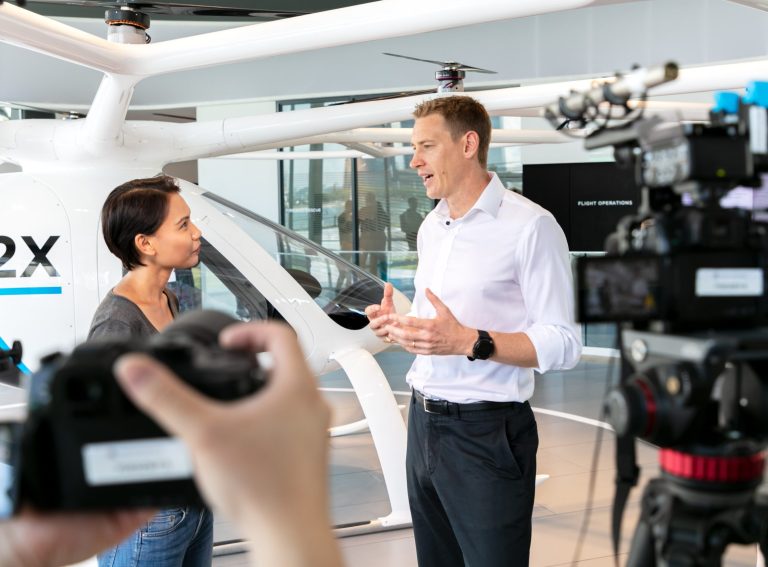The FIA Foundation is an international charity striving for safe and healthy journeys for all.
Leading the Foundation’s work on environmental sustainability, clean air and gender is Deputy Director Sheila Watson.
Executive Secretary to the Global Fuel Economy Initiative and The Real Urban Emissions Initiative, and board member for the World Bank’s Sustainable Mobility for All project, it’s no wonder Sheila was named one of the 40 most influential women in transport by the German Government.
Zag: You’ve specialised in environmental issues for many years. Where did your inspiration come from?
Sheila: “I have a background in economics and, to me, sustainability seems like the next obvious major global challenge. Well, it’s not next. It’s current. It’s our current global economic challenge that’s also political as much as it is anything else. Seeing it in that way and appreciating that we had to use every tool at our hands to address the many environmental impacts of humankind so that we can preserve and protect what we love about our planet.”
Zag: What’s the relationship between the political economy and sustainable transport?
Sheila: “They’re completely interrelated. I believe politics runs through our lives. I know there are lots of people who say they want to do things that don’t involve politics, or ‘let’s take it out of politics’ but I think there’s nothing on our planet that isn’t impacted by the political systems in which we live. Economics is fundamentally about resource use and the choices about what we buy and what we sell. So, political economy and sustainable transport are intrinsically connected.”
Zag: You served as Senior Special Advisor to the UK Labour Government for 10 years. How does your political experience ground your work today?
Sheila: “You’re often lobbied when working in a government role. Being lobbied has such negative connotations but it can be very helpful. People come and tell you what’s wrong with what you’re doing and what they think you should change.
“Far less often, however, were people coming to me with solutions and saying ‘this is what we need to do’ – it was more a period of raising awareness. With my work now, it’s crucial that when we raise an issue of concern we give examples of how to do things better – it’s the art of the possible. Raising the issue is one thing, but being part of a working solution is even more valuable.”
Zag: The FIA Foundation is surely one such working solution. What does it do?
Sheila: “The Foundation is a UK-based global philanthropy, and we work with partners around the world on issues regarding safe, clean, fair and green mobility. That’s everything from the electrification of vehicles, to road safety initiatives, to supporting policy activity on air quality.
“The real focus is on the impact of our mobility choices on the environment around us – addressing the negative impacts of mobility patterns whilst at the same time doing our best to protect the benefits that motorised vehicles bring, such as access and prosperity. We also want to protect and promote walking and cycling which don’t have a huge carbon impact and bring these benefits too.
Zag: The FIA Foundation called for COP28 UAE delegates to further invest in active mobility. How far do you think UNFCCC governments are with achieving their Nationally Determined Contributions (NDCs)?
Sheila: “The details are captured in a very thorough report by PATH which was produced around COP28. Ultimately, the report showed that too few governments have an NDC which contains walking and cycling commitments, and far more needs to be done. The report also includes a draft NDC to help countries to do more. We know that within many levels of administration there isn’t the knowledge, experience or the appreciation of what a NDC with strong policies on walking and cycling would look like. By preparing a draft outline of one, we were trying to contribute something of value to the debate.”
Zag: What’s a personal challenge you’ve faced as a woman in the industry?
Sheila: “I didn’t come into this job with a background in transport. I have my broader background in environmental issues, but I didn’t have that detailed expertise. Transport is a very male-dominated sector and there’s a challenge of being respected, acknowledged, and taken seriously as someone who knows what they’re talking about. I was aware that it may have been a little bit harder to build my profile as many levels of the industry are male-dominated. I’m not by any means a transport expert, but I’m a strong believer that it’s terribly important to understand as much as you can in the field you work in. So that is what I have done.”
Zag: How did you overcome this?
Sheila: “In every role I’ve ever had, and whether I’ve felt there’s any bias or not, I’ve always just believed you have to know what you’re talking about. I simply picked up on as much knowledge as possible which I continue to do to this day. I think that’s the best way to make a place for yourself. I promote the Foundation’s interests by knowing as much as I can without becoming a technical expert myself. One of the ways I’ve tried to do that is by filling in the gaps and identifying those issues that are being neglected because others aren’t necessarily working in the field or, more importantly, funding the field.
“An example is our Global Fuel Economy Initiative which we set up many years ago in the early days of my time at the Foundation. This initiative is focused on the fuel efficiency of vehicles which had been neglected in the policy space even though all forms of efficiency generate vast savings of CO2, oil and fuel. We focused on this and built an influential partnership of organisations to work in the field to understand how fleets are being transformed globally and how vehicles are changing.”
Zag: What do you think is an overall barrier for women in the industry?
Sheila: “Perception. If you take our sector in its widest form, as transport or mobility, then it is male dominated. It’s an area where women are the minority at every level. How many transport ministers are women? Or how many women are there in high positions in the private, public, or third sector? How many women are running those organisations and having influence? The general perception is that transport is for boys or men. But I work with some of the most brilliant, creative, informed and expert women throughout the sector. I don’t personally feel to be in the minority day to day, but I certainly wouldn’t deny the existence of that for other women in other parts of the transport sector.”
Zag: What practical measures do you want to see organisations taking to bring women into the industry?
Sheila: “We supported a report with POLIS and the World Bank which analyses the role and status of women across the sector. In that work there were examples of public and private organisations and companies introducing schemes which promote the engagement of women. There are educational and training opportunities but also practical things such as offering bus drivers proper hygiene breaks. Organisations need to introduce structures which allow women to be comfortable in those roles and address the obvious differences in needs between our genders, such as childcare which all too often falls on the women. Also, it makes a difference if you see women doing the work. Women who have the passion for the industry, who have a real commitment, who have the expertise – this creates an energy in the space that will continuously bring women in.”
Zag: What’s the year ahead looking like for the FIA Foundation?
Sheila: “I bet everyone says the same thing – busy. The sustainability challenge is big. We have more work coming from all our initiatives. The PATH initiative is focusing on the next COP meeting, and the one after that, to address the NDC issue and offer more insights into how the shortage of action can be addressed. There’s also a range of other things going on in the road safety debate from a walking and cycling perspective. The Real Urban Emissions initiative is growing all around the world from Sao Paulo to Delhi, to Africa for the first time. The Global Fuel Economy Initiative is 15 years old and we plan to celebrate that anniversary by focusing on the issue of vehicle size and SUVs. Alongside that, the Foundation is very engaged in global policy debates and conversations.There’s a lot to be done and there’s no shortage in activity. It all comes down to energy.”
Zag: Who is an influential woman in the industry you would like to spotlight?
Sheila: “I would like to nominate Rachel Muncrief, Acting Executive Director of the International Council on Clean Transportation (ICCT) based in DC as my inspiring woman in the sector. Rachel has led the ICCT with calm professionalism and grace, building a globally influential organisation which marries huge technical skills with great policy savvy – as does she – and steering it to ever-greater success.”





